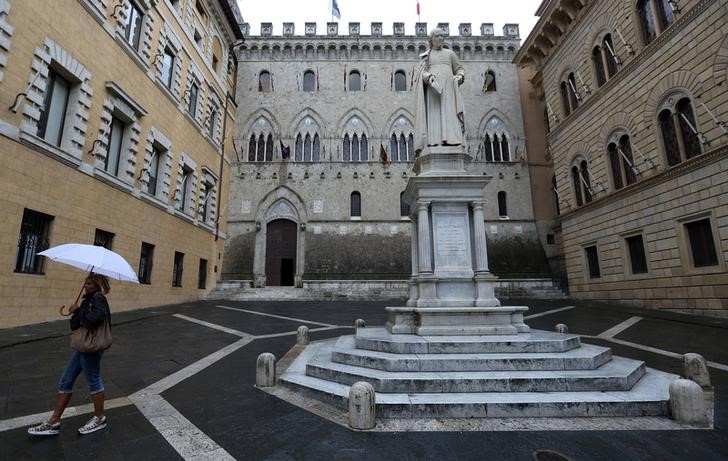By Giselda Vagnoni
ROME (Reuters) - Italian prosecutors have decided to take Morgan Stanley (N:MS) to court over allegations that the U.S. bank caused 2.7 billion euros ($3.1 billion) in losses to the state in relation to derivative transactions, a source familiar with the matter said.
The Corte dei Conti, which rules on abuses of public funds, is bringing the case against Morgan Stanley on behalf of Italy's taxpayers. Its prosecutors made their decision after an investigation into derivatives contracts they say were drawn up by Morgan Stanley (N:MS) and Italian officials, which caused losses to the state.
In going to trial, the prosecutors believe there is a case to answer. The hearings are expected to begin next April, the source said. If the allegations are proven, a judge may order Morgan Stanley to pay compensation to the Italian government.
"The investigation phase has ended and the court will hear the damages claims," the source said, seeking anonymity because he was not authorized to speak publicly on the decision.
Morgan Stanley declined to comment.
Last August, Morgan Stanley said in a securities filing it had received a proposal from an Italian prosecutor about a payment to settle derivative transactions. Morgan Stanley said the proposed claim was groundless.
The derivative transactions were originally entered into between 1995 and 2005 and were terminated in December 2011 and January 2012, Morgan Stanley said in the filing.
The Corte dei Conti case centers on interest rate derivatives agreed between the Treasury and Morgan Stanley. They were meant as a form of insurance for the government, one of the most heavily indebted in Europe, in the event that market interest rates were to rise.
After the 2008-2009 global financial crisis, interest rates plunged, enabling Italy to borrow more cheaply in the bond markets but incurring large losses on its derivative positions.
Offsetting such gains and losses are a normal part of hedging, but the Corte dei Conti prosecutors argue that some contracts negotiated with Morgan Stanley were speculative in nature and contained termination clauses that were overly advantageous to the bank.
The Italian court will also hear claims worth a total of 1.18 billion euros against two senior government officials - public debt chief Maria Cannata and Treasury boss Vincenzo La Via - and former finance ministers Domenico Siniscalco and Vittorio Grilli.
The offices of Cannata and La Via referred media enquiries on the case to the Treasury press office.
A Treasury spokesman said it had full faith in the work undertaken by its managers and trusted that the court could clear up these matters.
Grilli and Siniscalco declined to comment.
The prosecutors have also alleged that Morgan Stanley had a conflict of interest, saying it not only sold derivatives to the Treasury but was also engaged in helping Italy to manage its financing operations, including buying and distributing government bonds.
Between late 2011 and early 2012, the government paid Morgan Stanley around 3 billion euros to settle the termination of derivative contracts, the source said.
Compensation orders by the special audit court, which will hear the case, can be appealed. Once confirmed, they are legally enforceable through asset seizures if necessary.
